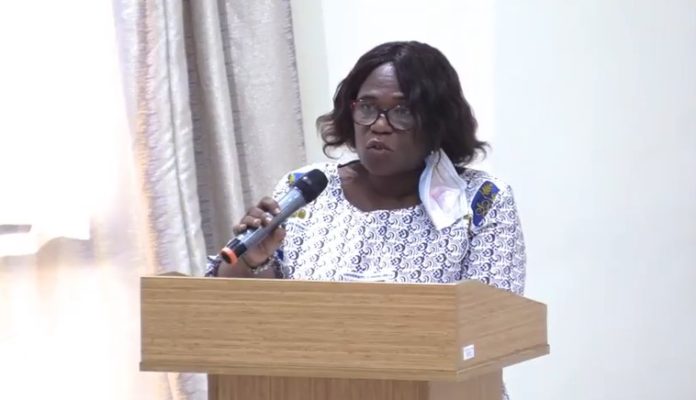The Covid–19 pandemic has brought most countries to their knees, disrupting many economies leaving no one in its disruptive grip. These effects are severe to the extent that a lot of workers have lost their jobs and some of the countries have banned the exportation of food commodities into the international market.
However, the President of the Republic of Ghana, in the State of the Nation’s Address indicated that there was an abundance of food despite the effect of Covid-19. This postulates that Covid-19 has not necessarily affected Ghana’s agriculture as a lot of stakeholders are lamenting. This underscores the assertion by Prof. Irene Susana Egyir that the slow pace of agricultural growth is not necessarily occasioned by Covid-19.
Prof. Egyir made this revelation during her presentation at the 72nd Annual New Year School and Conference in Accra on the topic Sustainable Food Production and Resilient Agricultural Practice. Prof. Irene mentioned that the factors that are impeding agricultural growth are disregarding the several sources of food and non-food activities, non-ready workforce and responsiveness, and non-engagement of the necessary sectors to push the agenda of sustainable agricultural development.
According to Prof. Irene, last year, just before the lockdown, a survey conducted revealed that Ghanaians concentrated on few food crops such as gari, rice, and maize leaving behind the other food commodities like roots and tubers, fruits and vegetables, and the rest. “We have probably concentrated too much on too few food commodities and believe that agriculture is about these foods whilst there are a lot of unexplored sources that we could give enough attention to in terms of research, extension service, and all the things that are done for maize and rice”, she complained.
“Even in the livestock sector, the concentration has been on cattle, sheep, goat, and poultry but there are great opportunities in others like rabbit, aquaculture like catfish which I engage in. All that one needs is to have passion, a little amount of capital, and a good attitude”, she added.
She reiterated that if Ghana wants agriculture to contribute to the economic development then attention should be given to plantations such rubber, coffee, cashew, oil palm, coconut, etc which equally command huge foreign exchange just like cocoa.
Prof. underscored the availability of the needed materials for production on the market and how easily the materials that are not on the market could be imported but the issue lies with the human resource. The attitude of the agriculture training graduates on the field deters the rich and wealthy people from venturing into it.
To her, to actualize agricultural growth in Ghana, the youth who are the working force, ought to be available and exhibit the kind passion, the kind of good working attitude, and the kind of urgency towards work on the field.
“I agree that the young people are vibrant and they are available, therefore, we are calling on them to do more for they are the support system. Sometimes, it is sad to see the way the youth respond to things that ought to be done quickly on the field. On the field, there are health issues to manage: soil health, water health, plant health, post-harvest health, and food safety issues which require good human resource capacity, surprisingly, we are not seeing it in our workforce irrespective of the youth that is being trained”, She bemoaned.
Prof. is of the view that the folding of arms of the various sub-sectors that constitute agriculture is contributing to the slow pace of Ghana’s agricultural growth. She indicated that Agriculture is not only for the Ministry of Food and Agriculture, therefore, but all relevant state institutions should also step up to their tasks in terms of ensuring that machinery is available, the water bodies are available to used to develop the irrigation and one district one factory policy is being pushed in order to make the sector attractive to investors.








